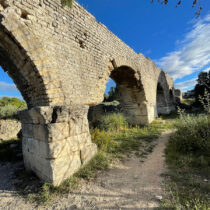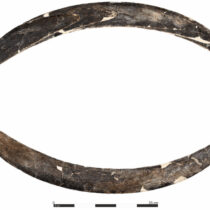He was a slave, serving two of the most important Roman leaders. When he was freed, he served his hometown so much that he became a local patron. This was the life of Zoilos, a man known today by various inscriptions found around the ancient city of Aphrodisias, in the ancient region of Cilicia, in modern day Turkey.
Evidence on Zoilos provides archaeologists with new insights into the lives of Roman slaves. For a time archaeologists assumed that he was a member of a local aristocratic family. But their perspective changed with the discovery of an inscription identifying him as “Gaius Julius Zoilos, freedman of the divine Julius’s son Caesar.”
Zoilos was probably a native of Aphrodisias, Turkey, kidnapped or captured in war and sold as a slave to Julius Caesar. When Caesar died, Zoilos was passed to Octavian, who eventually freed him. Zoilos must have been intelligent and resourceful, somehow amassing a great deal of wealth that he later used to benefit his hometown. When Zoilos died sometime in the 20s BC, the people of Aphrodisias, Turkey, established a large monument in his honor.
But Zoilos and his story are unusual. For every Zoilos there were thousands of Roman slaves who never escaped their station. In most cases, we neither know nor remember the names of these Roman slaves. In the Roman Empire, one was either slave or free. Unlike more recent experiences, however, slavery was not based on race or ethnicity. Anyone could become a slave.
How a slave was treated depended on the owner. Some, like Zoilos from Aphrodisias, Turkey, seem to have fared reasonably well. Many Roman slaves, however, worked on farms, in mines and in other types of industry where life expectancy was typically short. Roman slaves were shackled, flogged, branded and maimed, and sexual abuse was not uncommon.
But as the case of Zoilos from Aphrodisias makes clear, slavery was not necessarily a permanent situation. Emancipation was possible, and Roman slaves owned by Roman citizens could, under certain requirements, become citizens. Becoming a freedman meant the possibility of acquiring various advantages. Some remained attached to their masters’ houses and received social, economic and political boosts not normally available to poor free persons. Even freed Roman slaves like Zoilos, however, were considered social climbers by the aristocracy, and therefore not equal to their new status. Still, no matter how Zoilos was seen by Roman citizens of his time, his actions make us admire his courage and his will to change his fate, 2.000 years after his death.




